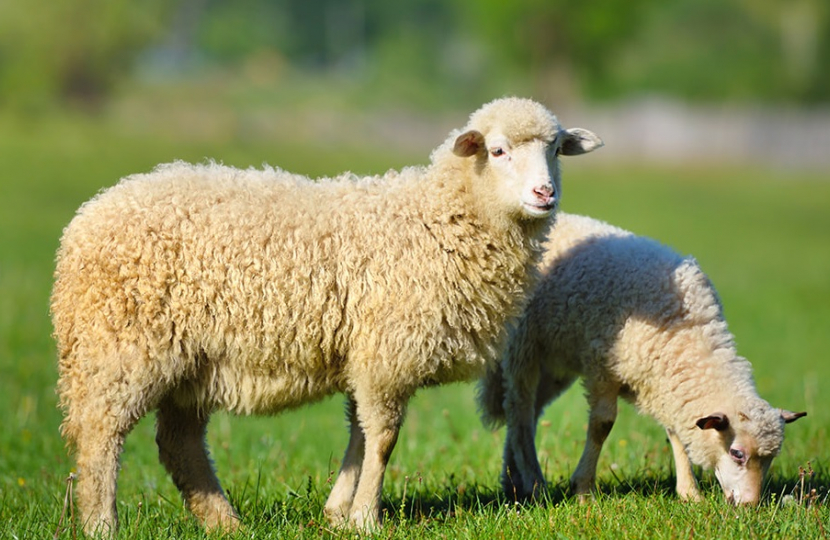
In a debate last night in Parliament, Theresa Villiers MP expressed her strong support for a ban on the live export of animals for slaughter. This is a cause she has championed for over two decades. In her speech during the second reading debate on the Animal Welfare (Live Exports) Bill, Ms Villiers said:
"I warmly welcome the Bill as further evidence of the Conservative commitment to improving standards of animal welfare in this country. The presence of the Bill on our agenda means, in my view, that this is a good day for Parliament.
This has been a long time coming. I am talking not about the demise of the Animal Welfare (Kept Animals) Bill, but about the decades-long concern about this issue. It was at the end of the Victorian era that the public first started to express their grave concern about the suffering of animals transported overseas for slaughter. Demands that this trade be brought to an end led to Committees being established by Ministers as far back as 1957 and 1974. An attempt to restrict exports in 1992 by the Major Government was blocked by the European Court of Justice on the grounds that it impeded the operation of the EU single market.
The trade peaked at over 2 million animals a year in the early 1990s and opposition to live exports also grew in the 1990s, as we have heard from my right hon. Friend the Member for Hemel Hempstead (Sir Mike Penning). Very large-scale protests took place, including what became known as the battle of Brightlingsea in 1995. This saw a somewhat unlikely alliance between local Essex residents and animal rights protesters banding together to try to prevent the export of livestock through the town. While, thankfully, exports from the UK have stalled over the past few years, around the rest of the world about 2 billion animals are still subjected to excessive long-distance transportation.
As we have heard many times in this Chamber over the decades, live exports can involve animals crammed into trucks and on to ships for journeys in shocking conditions that can last several weeks, during which they suffer distress from mishandling, overcrowding, excessive heat and cold, motion stress, injuries, prolonged hunger and thirst, restriction of movement and an inability to rest. Of course, the UK livestock sent to Europe should in theory be protected by the EU’s rules on live transport—rules that I certainly fought to toughen up when I was an MEP—but as successive reports from the European Parliament confirm, these rules simply are not always complied with or enforced, so the suffering continues.
Moreover, there is a danger that some animals exported to European destinations, particularly Hungary or Bulgaria, may be sent on to the middle east, suffering even longer journeys and slaughter conditions that are frequently inhumane. Even the animals that stay in the EU can be subject to lower welfare standards. For example, Spain permits barren conditions to be used for calves, which would be illegal if deployed in this country, and cruel and illegal practices in abattoirs in France have been highlighted on a number of occasions, including in reports by the French Parliament.
Practical reasons may have brought this trade from Britain to a halt for now, but we must legislate to ensure that it does not start up again. Vital ethical principles are at the heart of this very long-running debate: the principle that, as sentient beings, animals cannot be treated simply as a commodity; the principle that a civilised society must ensure that all animals, particularly those used by humans as part of our food supply and for other purposes, are treated with compassion and spared unnecessary suffering; and the principle that sending livestock to other jurisdictions, over which we have no control, violates our moral responsibility to prevent unnecessary animal suffering.
Today is an opportunity for us to listen to our constituents, who tell us again and again that they want to end live exports for slaughter and fattening once and for all. I pay tribute to every one of my constituents and other members of the public who over these past decades may have signed a petition, attended a protest, written to their MP or just played a part in this long-running campaign. Like others, I want to thank groups such as Compassion in World Farming, including the redoubtable Peter Stevenson, the Conservative Animal Welfare Foundation, the RSPCA, World Horse Welfare and all those who have worked so hard to get us to this point, as well as figures such as Selina Scott and Joanna Lumley for their commitment and dedication to the cause over many years.
I welcome this Bill, because it will deliver the ban for which I have been campaigning for a quarter of a century, first as an MEP and then as an MP. I committed the Government to it when I was the Environment Secretary, and I secured its inclusion in the 2019 Conservative manifesto. That was the first time that Conservative promises on this issue extended beyond live exports for slaughter to include fattening as well. That was a crucial change, and it is a crucial part of this Bill.
The loss of the Animal Welfare (Kept Animals) Bill was frustrating, but now we have left the EU and the single market, this House finally has the power to determine what our laws on this crucial question will be. With that freedom, now is the time to get this done to set an example to countries around the world where these hellish long-distance international journeys still continue, to ensure that animals produced in this country remain subject to our very high standards of animal welfare—standards determined by this Parliament—and to implement the long-held wishes of the constituents of each and every one of us. Now is the time to ban live exports."
The Bill passed its second reading stage with unanimous support and now goes on to a committee of MPs to carry out detailed scrutiny.
Digital imprint: Promoted by Theresa Villiers of 163 High Street, Barnet, Herts, EN5 5SU.


